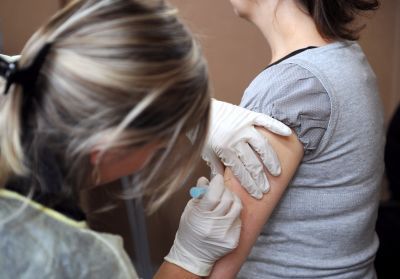France calls in army to meet demand for swine flu jab

Your support helps us to tell the story
From reproductive rights to climate change to Big Tech, The Independent is on the ground when the story is developing. Whether it's investigating the financials of Elon Musk's pro-Trump PAC or producing our latest documentary, 'The A Word', which shines a light on the American women fighting for reproductive rights, we know how important it is to parse out the facts from the messaging.
At such a critical moment in US history, we need reporters on the ground. Your donation allows us to keep sending journalists to speak to both sides of the story.
The Independent is trusted by Americans across the entire political spectrum. And unlike many other quality news outlets, we choose not to lock Americans out of our reporting and analysis with paywalls. We believe quality journalism should be available to everyone, paid for by those who can afford it.
Your support makes all the difference.French authorities said Saturday they were calling in the army's health services to meet a surge in demand for vaccinations against swine flu, which has killed 30 people in the country.
Mass vaccination centres opened on November 12 but "since last week, the number of people seeking to be vaccinated against the A(H1N1) virus has been sharply increasing," the health and interior ministries said in a statement.
"The army's health services will be called as back-up," it said.
Medical students and in-house company doctors will also help meet high demand for the vaccination, the statement added.
The ministries said local authorities had been told to extend opening hours and increase capacity to cope with the surge in demand.
Police officials in Paris said Saturday that they would double capacity in each of the French capital's 12 vaccination centres by "the middle of next week."
The number of people receiving the jab each day has risen from an average of 1,000 at the start of the campaign to around 4,000 this week, Paris police said in a statement.
In Lyon, France's second largest city, the main vaccination centre ran out of doses just one hour after opening on Saturday morning.
"Usually we would close at 13:00 (1200 GMT), but we were overrun by 10:15," said Lieutenant Colonel Daniel Quiessu, an official with the Lyon Fire Brigade, which is responsible for organising and managing the crowds outside the centres.
Quiessu said that people were lining up outside the Ficelle gymnasium at 8:00, one and a half hours before it was due to open.
"I came yesterday and I found the doors were shut, not knowing (the centre) was closed. But nevermind, we'll come back later," said one father of three.
Earlier this week, police had to intervene to deal with the large crowds of people waiting outside the gym, where barriers have now been installed.
On Friday, President Nicolas Sarkozy said additional health centres would be opened to administer the swine flu vaccine after 30 died in the past ten days, including two with mutated viruses.
"I asked the ministry of health as well as the interior ministry to open more centres. There are little more than half open from just under a possible 1,200," Sarkozy told reporters during a visit to the summit of Commonwealth nations in Port of Spain, Trinidad.
A survey in France, carried out before the government campaign, found 74 percent of people were reluctant to take the swine flu jab. The study found many people believed the risk of illness was small or feared dangerous side effects.
Seventy-six people have died in mainland France since the virus emerged earlier this year, according to government statistics.
The World Health Organisation said Thursday it was investigating reports of mutations in the swine flu virus, after half a dozen countries recorded cases in which the virus was transforming.
Swine flu first emerged in Mexico in April and has been blamed for nearly 7,000 deaths worldwide according to the World Health Organisation, with most of the victims in the Americas.
lh/jf/sas
Join our commenting forum
Join thought-provoking conversations, follow other Independent readers and see their replies
Comments